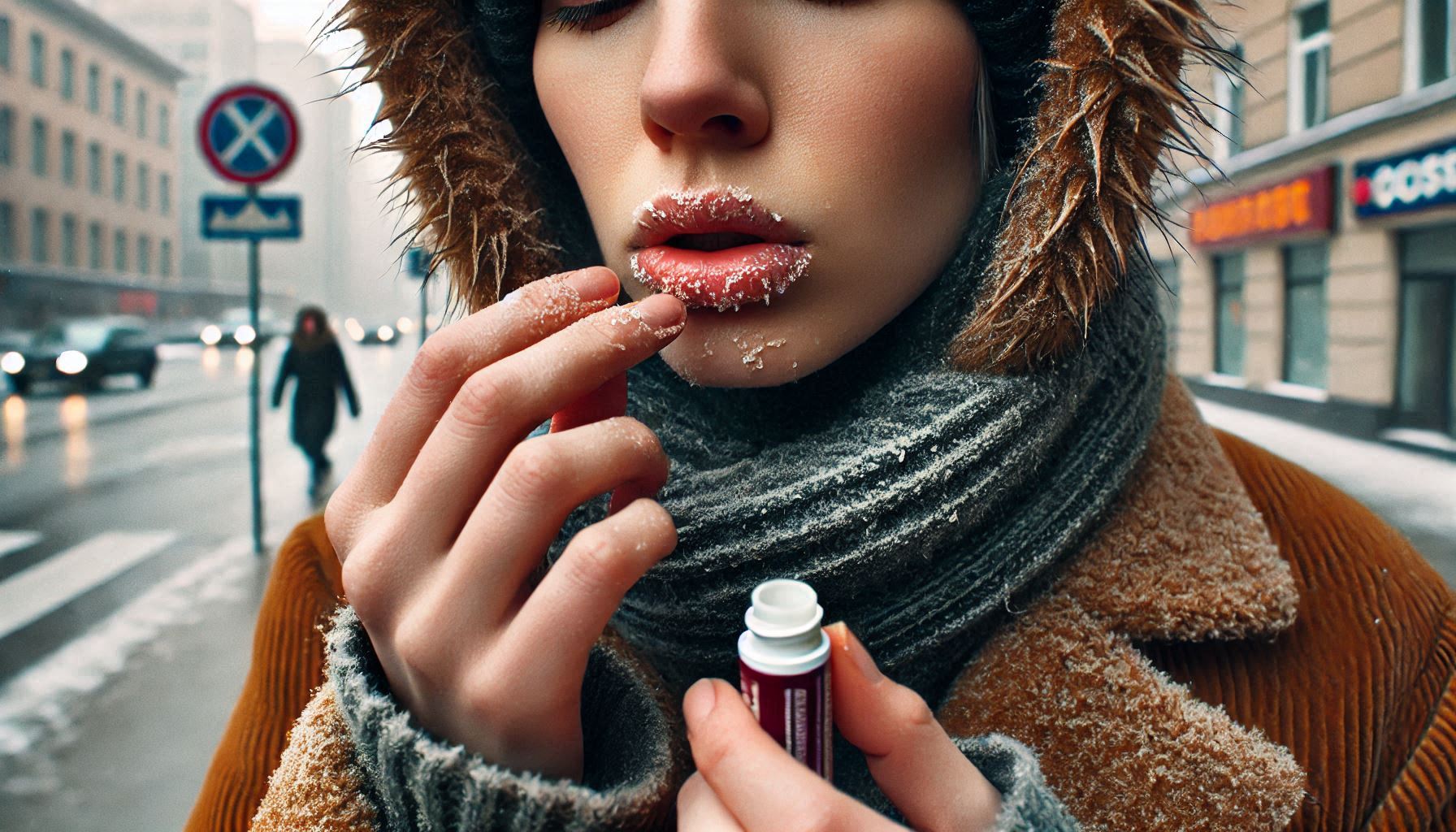Shopping Cart
CloseNo products in the cart.
Filter
closeKiss Chapped Lips Goodbye: Causes, Treatments, and Prevention for Smooth, Healthy Lips
A Comprehensive Talk on Chapped Lips Goodbye

Introduction
Chapped lips, medically known as cheilitis, can be more than just an annoying dry sensation—they can crack, bleed, and cause considerable discomfort if left untreated. This common condition affects millions of people globally, regardless of age or gender. Fortunately, with the right knowledge, you can take control of your lip health, understand the causes, explore effective treatments, and adopt habits that prevent recurrence.
What Are Chapped Lips?
Chapped lips occur when the thin, delicate skin of the lips becomes dry, flaky, or irritated. Unlike the rest of your skin, lips lack oil glands, making them more susceptible to drying out. The severity of chapped lips can range from mild dryness to painful cracks that hinder eating, speaking, and even smiling.
Causes:
Several factors can contribute to dry and cracked lips. Understanding these triggers is the first step toward prevention and recovery.
1. Environmental Factors
– Cold Weather: Winter air tends to be dry, pulling moisture from your lips.
– Wind Exposure: Harsh winds can strip your lips of their natural hydration.
– Sun Damage: Prolonged sun exposure can lead to peeling and painful burns on the lips.
2. Dehydration
– Inadequate water intake causes the body to pull moisture from less essential areas like the lips, leading to dryness and cracking.
3. Lip-Licking Habit
– While it might seem soothing in the moment, licking your lips removes natural oils and exposes them to saliva, which evaporates quickly, making dryness worse.
4. Allergies or Sensitivities
– Ingredients in lip balms, toothpaste, or cosmetics may irritate the lips.
– Certain foods, such as acidic fruits, can also trigger irritation.
5. Nutritional Deficiencies
– A lack of vitamins such as B-complex (especially B2 and B3), zinc, and iron can lead to chapped lips.
6. Medical Conditions
– Angular Cheilitis: Cracks or sores that develop in the corners of the mouth due to bacterial or fungal infections.
– Actinic Cheilitis: A precancerous condition caused by long-term sun damage.
– Chronic Conditions: Diabetes and autoimmune diseases can dry out the skin, including the lips.
Signs and Symptoms of Chapped Lips
Chapped lips manifest differently depending on severity. Look for:
– Dryness and flaking
– Redness or discoloration
– Cracks or fissures in the skin
– Pain or tenderness
– Bleeding, especially around the corners
– Scaling or peeling
How to Treat Chapped Lips
Chapped lips may be persistent, but the right remedies can work wonders. Follow these steps for relief:
1. Rehydrate from Within
– Drink Water: Aim for at least 8 glasses of water daily to maintain hydration.
– Electrolytes: If dehydrated, opt for drinks rich in electrolytes to replenish your body’s balance.
2. Use Lip Balms and Ointments
The cornerstone of any treatment plan for chapped lips is a good-quality lip balm or ointment. Look for ingredients like:
– Petroleum Jelly: Locks in moisture and creates a barrier against external irritants.
– Beeswax: Helps retain moisture while providing a natural protective layer.
– Lanolin: Offers deep hydration, especially for severely cracked lips.
– Shea Butter and Coconut Oil: Natural emollients that soften and nourish lips.
– SPF Protection: Shields lips from harmful UV rays, preventing sunburn.
3. Exfoliate Gently
– Use a homemade sugar scrub (mix sugar and honey) to remove dead skin.
– Avoid over-exfoliating, as it can worsen irritation.
4. Avoid Irritating Substances
– Steer clear of products with menthol, camphor, or fragrances that might sting or dry out your lips further.
5. Treat Underlying Causes
– If chapped lips persist, it might be a sign of an underlying medical issue. Speak to a healthcare provider for proper evaluation and treatment.
Home Remedies for Chapped Lips
For those who prefer natural remedies, here are effective options you can try:
1. Honey and Coconut Oil Mask
Honey has antibacterial properties, and coconut oil is an excellent moisturizer. Combine the two, apply to lips, and let sit for 15 minutes before rinsing off.
2. Aloe Vera Gel
Aloe is soothing, hydrating, and can help repair cracked lips. Use pure aloe vera gel directly on your lips.
3. Cucumber Slices
Rub fresh cucumber slices over your lips to hydrate and reduce irritation.
4. Green Tea Compress
Soak a green tea bag in warm water, then press it gently against your lips. The tea’s antioxidants and tannins reduce inflammation and promote healing.
5. When to See a Doctor
Most cases of chapped lips improve with proper care, but persistent or severe cases warrant medical attention. Consult a doctor if:
– Your lips remain chapped despite treatment.
– Cracks bleed frequently or develop infections.
– You notice white patches, swelling, or other unusual symptoms.
Preventing Chapped Lips
Prevention is better than cure. Adopt these habits to keep your lips soft and healthy:
1. Stay Hydrated
Drinking sufficient water daily is the simplest way to maintain lip moisture.
2. Use a Humidifier
Combat dry indoor air, especially during winter months, by using a humidifier.
3. Protect Your Lips
– Wear a lip balm with SPF when outdoors.
– Cover your mouth with a scarf in cold or windy conditions.
4. Avoid Harmful Habits
– Resist the urge to lick, bite, or pick at your lips.
– Quit smoking, as it dries out the lips and accelerates aging.
5. Eat a Nutrient-Rich Diet
Incorporate foods rich in vitamins B, C, E, and iron to support overall skin health.
6. Choose Lip-Friendly Products
Opt for hypoallergenic and fragrance-free lip products. Look for certifications indicating the absence of harmful chemicals.
How Long Does Recovery Take?
Recovery time depends on the severity of your chapped lips. Mild cases usually heal within 2–3 days with proper care, while severe cases can take up to a week or more. Be consistent with your hydration and lip care routine for faster results.

Final Thoughts:
Chapped lips can be uncomfortable and unsightly, but they are highly treatable with the right approach. By addressing the root causes, using effective treatments, and taking preventive measures, you can keep your lips smooth, healthy, and kissable all year round.
If you’re struggling with chronic lip dryness, consider examining your daily habits and environment. Simple adjustments like drinking more water, protecting your lips with a good balm, and avoiding irritants can make all the difference.
Say goodbye to dry, cracked lips for good and enjoy the confidence that comes with a soft, healthy smile. Start your journey to recovery today—your lips will thank you!
ItHurts.com is your ally in your endeavor to live pain-free. We offer guidance, resources, and community support to address chronic pain, emotional stress, and physical discomfort. Discover insightful articles, product reviews, recommendations and shared experiences to empower your journey to better health. Remember, if it hurts, we can help!
Related Products
No posts found!
Related Blogs
No posts found!
